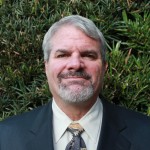No one ever said being a rep is the easiest way to make a living. To make it a bit more manageable and to help newly established reps avoid some common pitfalls MANA has initiated a mentoring program where nascent reps can benefit from the advice of a veteran of the profession.

© Peter Wiener | Dreamstime.com
This initial venture is guided by Joe Miller, MANA’s President and CEO from 1998-2006. According to Miller, “MANA generally gets 25 to 30 new rep members each month. About one-third of them are new businesses. You know the drill — super-successful, medium- to large-company salespersons and sales managers who have had all the corporate ‘fun’ they can stand and who want to provide a better living for themselves and their families. Many of these men and women are in the top 10 percent of their fields and have developed excellent selling skills. Most, however, are lacking in the experience and skills needed to start a rep business and navigate through the first couple of challenging years! Unfortunately, statistics show that many of those agencies fail to make it past the one-year mark.”
Miller explains that a goal of the program is to “smooth the way and advise new reps how to avoid some common errors.”
The concept for this program originally was brought up in 1998 by MANA’s President Emeritus Lionel Diaz. Diaz admired the SCORE program and envisioned SCORA for reps (i.e., Service Corps of Retired Agents vs. Service Corps of Retired Executives).
The mentor program is currently in a “beta” stage and comprises five members who joined the association in October. Those members meet with Miller as follows:
- An initial one-hour phone conversation.
- Six conference calls by Miller with all the reps.
- Intermittent question-and-answer sessions by phone or e-mail.
- A final one-hour exit interview.
Among the more common subjects that Miller addresses with the new reps are:
- A review of the rep’s strengths and weaknesses.
- Need of a sound business and financial plan.
- Selecting the best principals.
- Negotiating fair and balanced contracts.
- The importance of having a board of directors comprising a banker, CPA, financial planner, insurance adviser and an attorney.
Miller continues, “One of the key functions we perform is to show the reps where they can get help and to acquaint them with all of MANAs’s resources. Our thinking is that by better preparing them for what they’re going to face, their chances of surviving and thriving past that first-year mark will improve dramatically.”
Reps Giving Back
In describing the MANA mentoring program, Miller notes that “Many successful MANA agency owners give back to their profession in a variety of ways. Some choose to serve on our Board of Directors, others lead local MANA chapters and others donate regularly to MANA’S educational foundation, MANEF.”
He continues: “Now there is another way to honor the profession and the association that has provided you with an above-average living! Interested members are invited to become mentors in MANA’s new “Pathway to Rep Success” program. Here’s an opportunity to give something back by sharing your experience with someone just embarking on their first entrepreneurial adventure.
“Won’t you consider helping these folks benefit from your experience? Just think if someone would have been there to help you avoid the one or two major mistakes you made during the first year of your break from the ‘security’ of corporate life.
“Our new MANA mentors will probably come from one of the following categories:
- Reps with solid succession plans who are about to slow down or phase out.
- Newly retired MANA members looking for an opportunity to make a difference.
- Rep firm owners who have the 10 to 12 hours per month needed to mentor a small group of MANA beginner agencies for six months.
- Any agency owner who has been a rep for at least five years who believes that volunteering is necessary for a well-balanced lifestyle.”
Here’s a general outline of how the program will work:
- The newly selected mentors will be given a 2–3 hours training with mentor program leader Joe Miller. Training will be via conference call and will focus on familiarizing mentors with the resources available in print and on the website that will be used in the mentoring process.
- Upon completion of training, mentors will be assigned a small group of new members to shepherd through their first six months of membership. Group size will generally be 6 to 8 rep firm owners and they will not necessarily be in the same industry or geographic area as the mentor as the principles to be discussed will be generic to all rep firms.
- All mentoring sessions will be conducted by appointment and via telephone, or in some cases, via e-mail. Focus will be on use of MANA resources and specific individual mentor real life experiences you feel will help your mentees.
- Areas of individual and group coaching will probably focus on those areas which will be of the most immediate use to the new member. These will include, selecting compatible principals, using the MANA LineFinder, negotiating favorable contracts, business planning and how to juice up cash flow through market development fees and unique commission payment strategies.
- The mentor will have an initial one-hour telephone conference with each mentee focusing on developing the new member’s strengths, weaknesses and immediate needs. At the conclusion of this call the mentee will be directed to those MANA resources that will most quickly produce results.
- Group teleconferences will be conducted by each mentor once each month where a preselected topic will be taught for ½ hour and the balance of the call allocated to group discussion and sharing of ideas.
- Each mentee will be able to check in with the mentor in between conference calls by appointment or e-mail only so as to allow the mentor to control his/her schedule. A final one-hour, individual counseling call will occur just prior to the end of the six-month program.
- Upon completion of the six months, mentees will be “cut loose” and encouraged to contact MANA staff members with further individual questions. Mentees wishing to stay together as a support group may do so and elect a leader who will coordinate monthly teleconference agendas and arrange the calls.
- After six months, each mentor can “retire,” pick up another group or take a break.
- Mentors will have considerable latitude to set call agendas based on each group’s needs and their own personal experience, but certain MANA publications and webinars will be strongly recommended to most groups of new members.
- MANA will charge an additional fee for the program. Without the fee, chances are the participants will not participate to the extent they would when they invest in the program. The value they receive creates a significant return on the program investment.
- Mentors will be recognized with a Jack Foster article in Agency Sales magazine about their agency and a free business card ad in the Marketing Services Directory at the back of each issue of Agency Sales.
As mentioned above, it is anticipated that each mentor will need to devote about 10 to 12 hours per month for the six months that their group is active. Some mentors may choose to stay in touch with individual mentees or even participate in the ongoing group at their discretion, but each group will be encouraged to use MANA’s staff for ongoing service and questions after the first half-year.
Please consider this excellent opportunity to make a lasting contribution to your association and profession. Interested MANA members should contact MANA headquarters at 1-877-626-2776.
What the beta participants say about “Pathway to Rep Success.”
 Lessons Learned from Mentor
Lessons Learned from Mentor
Frank Smith, president of Aluminum Solutions Consulting, LLC, Laguna Hills, California, explains that after opening his doors for business last September, “I needed something to help guide me through the early stages of setting up the business and the mentoring program fit the bill.”
He continues that among the many things he learned from working with Miller and the other reps in his group was that “I didn’t have to have my tail tucked in when I approached principals. I learned that I can be much more confident with the knowledge that they need me to sell their products.”
He also learned the value of negotiating with principals. “One of my first principals offered me the typical rep contract that didn’t really provide me with the type of protection I was looking for. After meeting with Joe (Miller) and the group, I negotiated a contract that gave me a two-year termination period. Since it was they who sought me out, I didn’t have any reservations about taking the stand I did. It made them respect me more.”
“In addition,” he explains, “the need for a business plan and the importance of focusing on the types of principals I should put under my belt were a great help.”
 Reps Find Company
Reps Find Company
If by definition independent manufacturers’ reps work alone, “They don’t necessarily have to be alone,” says Eric McDaniel, Industrial Marking Solutions, Houston, Texas. McDaniel, who together with his wife flirted with the idea of becoming a rep more than 10 years ago,
actually took the leap last fall. “One of the first things I did was contact MANA. I had heard of the association when I first considered being a rep and thought it was a great idea. I contacted Jerry Leth (MANA’s Vice President and General Manager) who acquainted me with the association’s products and services. He also told me about the mentoring program Joe Miller was conducting and I took
advantage of it.”
McDaniel admits that one of the first things the sessions with the group taught him was to lose his sense of arrogance. “I, like so many other people, thought I knew everything — that was hardly the case. A case in point is the importance of having a firm, signed agreement with a principal. I had been warned ahead of time and even then wound up making a mistake. I won’t do that again.” McDaniel touts the benefits of the mentor program not only for a new rep but for all reps.
 Taking Advantage of the Opportunity
Taking Advantage of the Opportunity
“After I joined MANA, I received an e-mail telling me about the mentoring program,” explains Rich Blumenthal, Big Blue Engineering, Mission Viejo, California. “It really wasn’t much of a decision for me since I realized there were plenty of things for me to learn. For instance, when it comes to aspects of the written contract there were plenty of things I hadn’t thought of, such as indemnification. Lawyers always seem to look to involve as many people as they can when there’s a problem. That’s why it’s so important to learn how to stay out of the way, and that’s one of the things that was emphasized.”
 Providing Direction and Support
Providing Direction and Support
“Thanks to a friend in Northern California, I knew about MANA even before deciding to become a rep,” explains Rick Wickizer, Wickizer & Associates, Camas, Washington. “That’s why I joined the association last year after deciding to become a rep.” Wickizer had spent more than two decades as a factory sales rep.
“Shortly after I joined MANA, Joe Miller called and introduced himself and the association and the mentoring program. I accepted the offer to join since I knew from the beginning that I needed the direction and support from an organization that provides education and training.”
From the outset Wickizer says Miller emphasized the importance of business plans and the need for the rep to have a good contract with his principals. “I took a lot of information away from my interactions with the mentoring group in order to leverage myself with one principal in particular. When I asked for a post-termination agreement, the principal said they had never been asked for one before. I explained that one was necessary for me to conduct business with them. I was successful in getting what I requested.”
Having a post-termination agreement wasn’t all that was emphasized for the group. “We also spent a lot of time on the importance of business and strategic plans and the need for a rep to have a formal or informal board of directors comprising experienced business advisors.”
Wickizer maintains having such a mentoring program is a real plus, and he says, “What you learn through it could very well be a key for a new rep’s future success. Statistics show that the top 10 percent of successful business people all have mentors. Why shouldn’t reps?”

